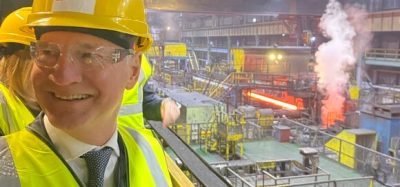Study finds American-made e-fuels could transform aviation and grid resilience while halving emissions
- Like
- Digg
- Del
- Tumblr
- VKontakte
- Buffer
- Love This
- Odnoklassniki
- Meneame
- Blogger
- Amazon
- Yahoo Mail
- Gmail
- AOL
- Newsvine
- HackerNews
- Evernote
- MySpace
- Mail.ru
- Viadeo
- Line
- Comments
- Yummly
- SMS
- Viber
- Telegram
- Subscribe
- Skype
- Facebook Messenger
- Kakao
- LiveJournal
- Yammer
- Edgar
- Fintel
- Mix
- Instapaper
- Copy Link
Posted: 20 November 2024 | Gabriel Higgins | No comments yet
A new study reveals that American-made e-fuels, produced using surplus renewable energy and waste CO2, could significantly reduce aviation emissions, enhance grid resilience, and drive economic growth.


A new paper from the Environmental Defense Fund, Intermittent Production of Electricity-based Synthetic Jet Fuel as a Demand-side Management Strategy for Grid Decarbonisation, highlights the significant economic and climate potential of American-made e-fuels. Aircraft emissions are a major and growing contributor to climate pollution, ranking among the world’s top 10 sources of greenhouse gas emissions if aviation were a country. With rising demand for air travel, addressing these emissions is critical for global climate goals.
Sustainable aviation fuels (SAFs) are widely considered one of the most effective ways to reduce aeroplane pollution. However, the true sustainability of SAFs depends on how raw materials are sourced and converted into fuel. By leveraging e-fuels—produced using renewable electricity—the U.S. can decarbonise aviation while supporting the grid’s transition to clean energy. This approach aligns economic growth with climate action, offering a pathway to a more sustainable aviation future.
“By marrying CO2 waste from local ethanol plants with surplus renewable electricity, the U.S. has the potential to produce some of the cheapest, most sustainable aviation fuels on the market, while growing the country’s economy, meeting climate goals and accelerating the energy transition,” said Pedro Piris-Cabezas, Senior Director, Global Transportation at Environmental Defense Fund. “State and federal policymakers have a critical role to play in supporting the growth of this exciting new industry.”
What are E-fuels and what did the study discover?
E-fuels — a type of SAF — are made by combining renewable electricity, water and carbon. When the electricity is sourced from excess renewable energy and the carbon comes from waste CO2, these ingredients produce a hydrogen-based fuel that’s cleaner and more affordable than any e-fuel currently on the market. But e-fuels are in short supply and too expensive for most airlines to adopt at scale, due in large part to the high cost of clean electricity and hydrogen required to produce these energy-intensive fuels.
EDF’s paper projects that when e-fuels are produced in a dynamic, supply-driven electricity market, e-fuel costs could be slashed by half compared to mainstream estimates. The paper also finds that there will be enough surplus renewable electricity in the U.S. to meet most or all of U.S. jet fuel demand with e-fuels in 2050, and potentially a significant fraction of demand in 2030.
Other key takeaways include:
- E-fuel synthesised in the Midwest could deliver a bulk of the 2030 U.S. SAF Grand Challenge target, which aims to produce 3 billion gallons of SAF annually. The main reason is that there are hundreds of ethanol plants producing high-quality, waste CO2 from their operations in the Midwest and renewable energy is abundant in the region.
- E-fuels should be produced when renewable energy is plentiful and demand for power is low, so as not to compete with other essential demand from homes and businesses.
- E-fuel production offers multiple co-benefits, including balancing the grid, fostering energy system resilience and supporting other hard-to-decarbonise sectors, such as shipping.
You can read the full report here.
Related topics
Cleaner, Greener Airports: Making Aviation More Sustainable Series, Data, Emissions, Green energy, Sustainable Aviation Fuel (SAF), Sustainable development

















